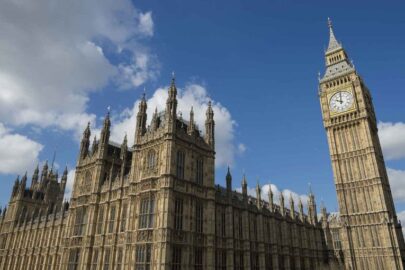The Work and Pensions Committee has published research on the trade-off between the State Pension triple lock and the State Pension Age, ahead of a debate this afternoon in the House of Commons on the Committee’s report on Intergenerational Fairness, on a motion to approve an extra £2.1bn of DWP spending in the current year.
The Committee’s report on intergenerational fairness called on government to scrap the triple lock: the research published today shows making the triple lock sustainable would mean pushing the State Pension Age over average life expectancy in poorer areas of the UK.
The triple lock uprates the State Pension annually by the highest of price inflation, average earnings growth or 2.5%. In its November 2016 report the Committee recommended that it be replaced from 2020 by a smoothed earnings link. This would benchmark the State Pension to a fixed proportion of average earnings in the long run, but would protect the purchasing power of the State Pension in period when price inflation exceeds earnings growth. The IFS estimates that by 2060 the Committee’s proposal would save 0.8% of GDP a year compared with the triple lock, or £15 billion in today’s money, equivalent to 4 pence on the basic rate of income tax.
The Committee found there was a fiscal “trade-off” between indexation and the State Pension Age:
There is, to some extent, a trade-off between the uprating of the state pension and the state pension age. The cost of a more generous state pension can be offset by restricting its availability to fewer people. Increases in the state pension age, however, disproportionately affect younger people. They also risk further skewing receipt of the state pension towards people in areas of the country, and socio-economic groups, in which life expectancy is high. People with low life expectancies, who may have been disadvantaged in their early years and working lives, would be further disadvantaged in their later years. We do not doubt that further increases in the state pension age will be required as welcome increases in life expectancy continue. They should not, however, be the sole means of ensuring the long-term affordability of the state pension.
The Committee commissioned the Institute for Fiscal Studies (IFS) to estimate the extra State Pension age increases that would be required to maintain expenditure on the triple-locked State at around 6.0% of GDP in the long run, i.e. the level that an earnings link in tandem with current State Pension age policy is projected to achieve. The IFS found that the State Pension age would need to be 70.5 years by 2060, meaning today’s young would face working lives of over 50 years before receiving a state pension.
Research by the Committee shows that, in many more deprived areas of England and Scotland, male life expectancy is below that level. The latest available data at very local level show:
- Male life expectancy was below 70.5 in 162 intermediate zone areas in Scotland, including in 62 of 133 such areas in Glasgow.
- The lowest male life expectancy was 62.5 years in the Parkhead West and Barrowfield area of Glasgow. In that area, female life expectancy was just 70.1 years.
- Male life expectancy was below 70.5 in 26 middle super output areas in England. These are dispersed across much of the country, including Blackpool, Manchester and its surrounds, Teesside, Leicester, East London and the Wirral.
- The lowest male expectancy in England was 67.5 years in the centre of Blackpool.
- By contrast, male life expectancy in the area of Westminster which includes Mayfair and Covent Garden was 92.9 years, 25 years higher.
- Healthy life expectancy – the number of years someone can expect to life in good health – is far lower still. In 14 of those 26 areas it was less than 50 years for men.
Frank Field MP, chair of the Committee, said: “With the triple lock in place the only way State Pension expenditure can be made sustainable is to keep raising the State Pension age. This has the effect of excluding ever more people from the State Pension altogether. Such people will disproportionately be from more deprived areas and manual occupations, while those benefitting most will be the relatively prosperous.
“By 2020 the State Pension will be at a level where it will provide a decent minimum income for people in retirement to underpin private saving, and any savings they have will be kept on top of, not clawed back from, the State Pension. The triple lock will have done its job and it will be time therefore to retire it.”
